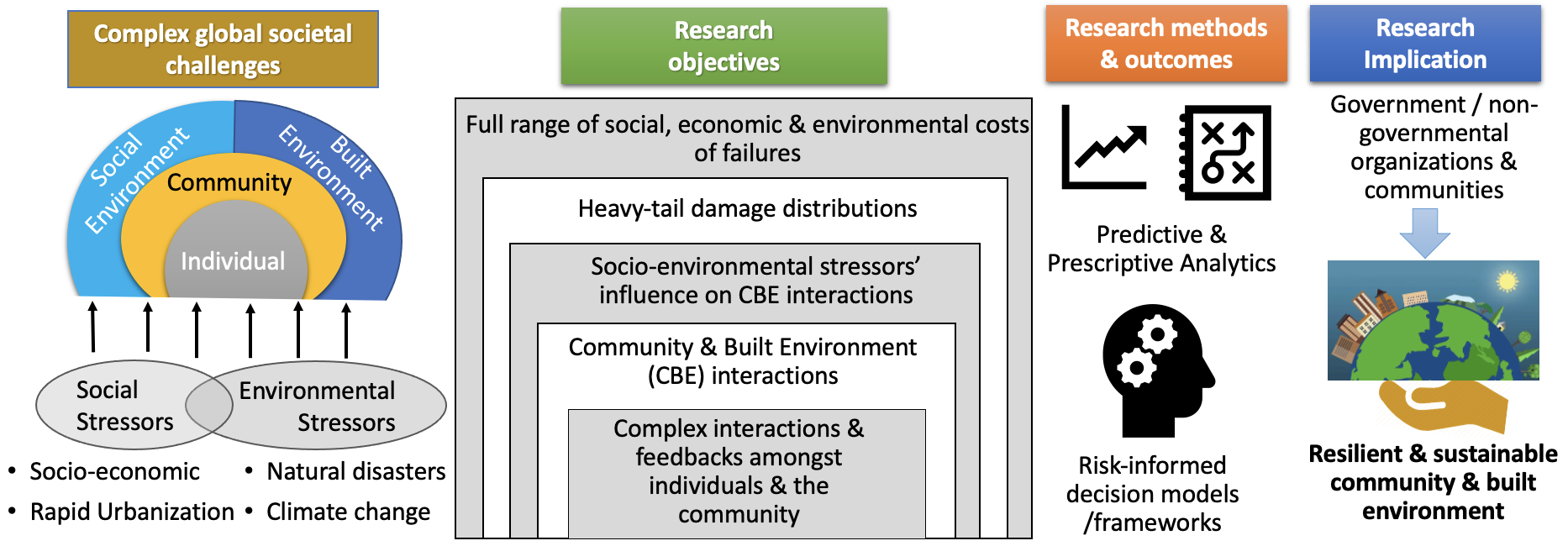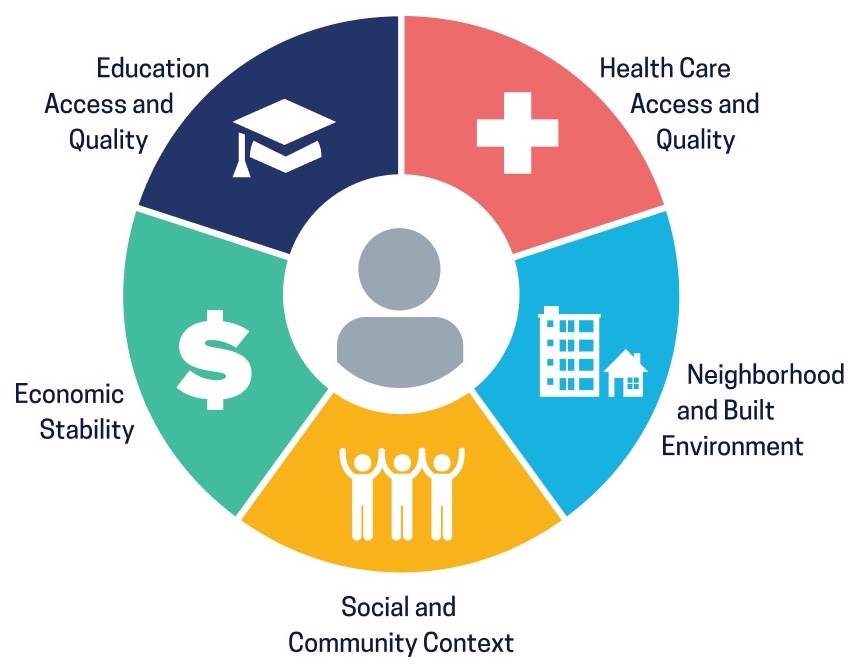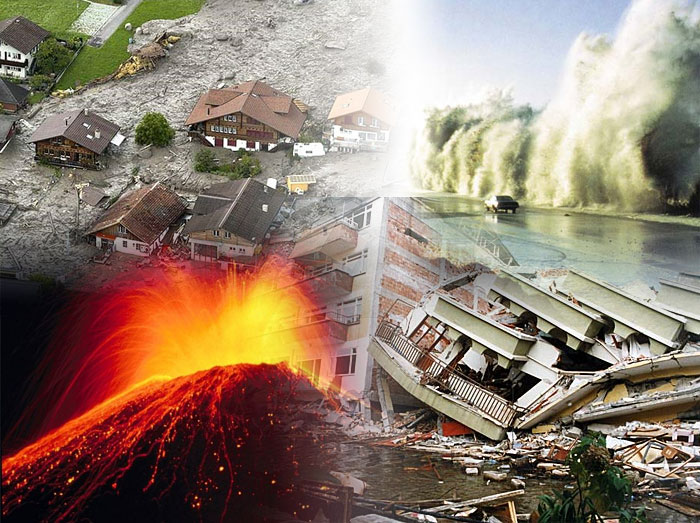About Us
Mission & Vision
The vision of the OASIS lab is to advance the field of risk science, leveraging operations research and artificial intelligence to address the complex global challenges related to the resiliency of our sociotechnical systems. The overarching research mission is to better understand, assess, characterize, communicate, manage, and govern risk of the complex societal problems from theoretical and practical perspectives. Our research team intends to accomplish this mission through
a) development of quantitative models examining systemic/stochastic impacts of various chronic/acute shocks on sociotechnical systems,
b) development of risk-informed decision models, and
c) investigating cost-effective adaptation measures to render our critical infrastructure systems more resilient, sustainable, and intelligent.
The primary research contributions of the OASIS lab fall into broad overarching domains:
1. Advance resilience of critical infrastructure systems (CIS);
2. Study socioeconomic drivers to CIS risk and resilience under extreme events
3. Investigate disaster-induced health burdens and social justice issues
4. Human mobility. data analytics to inform disaster planning, response and mitigation

Research Domains Highlights

Health BURDENS & Social Justice Issues
In the era of data evolution, when there is an increasing availability of big data along with a growing effort from scientific communities to improve data sharing, the importance of leveraging advanced statistical and machine learning algorithms to uncover trends, and patterns and make predictions for different aspects of the health inequities and social injustice issues considering deep uncertainties of the future cannot be overstated.

NATURAL hazard impacts on communities
The disproportionate and unequal risks that climate change has on communities that are least able to anticipate, cope with, and recover from adverse impacts are projected to increase. To that end, understanding and quantifying how vulnerable populations are disproportionately impacted by extreme events and how to optimally allocate resources to minimize such effects is of utmost importance.

Resilience of INTERDEPENDENT critical infrastructure systems
This domain primarily focuses on the accurate modeling of critical infrastructure systems (CIS) vulnerability under incomplete information, energy demand prediction for efficient grid management under climate change, and modeling the complex interactions between the electricity distribution systems and natural hazards.